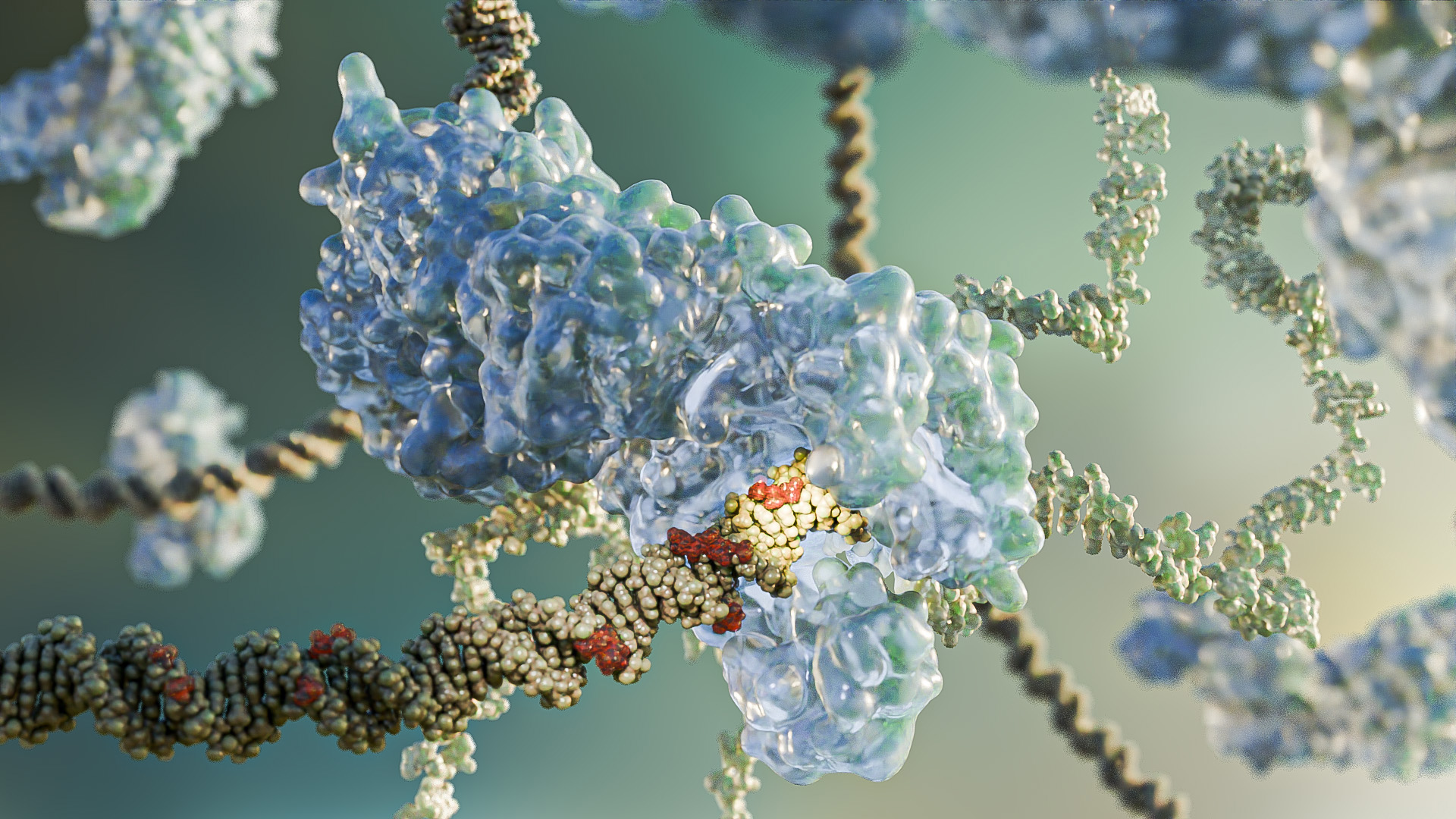When Omicron started its gigantic surge across the country, many Americans took solace in data suggesting that this variant is milder than earlier versions of the coronavirus. But one urgent question is whether Omicron changes the risk of “long COVID,” a cluster of debilitating symptoms that include fatigue, headache, pain and shortness of breath that can last for months after an initial infection. Is Omicron less likely to cause this syndrome, or does the danger remain as high as with other variants?
The potential implications of the answer are huge. Because the wildly contagious Omicron has infected so many millions of people, if only a small fraction of those who catch it develop long COVID, millions could be burdened with symptoms for months, if not years. The condition can make it impossible to work and hard to prepare food and care for children, says David Putrino, a rehabilitation medicine specialist at the Icahn School of Medicine at Mount Sinai in New York City, who treats patients with long COVID, sometimes called “long haulers.”
Researchers who study long COVID, which has been estimated to afflict about 14 to 30 percent of people infected with the coronavirus, say that because Omicron appeared so recently, they can make only educated guesses about its long-term impact. But the scientists note there are reasons to be both cautiously optimistic and very concerned.
On the worrisome side, for instance, the initial mildness of an infection may not predict the likelihood of long COVID. Although studies have found that people who are not hospitalized for the disease, when compared with those who are, have fewer lingering health issues down the line, such outcomes could be linked, in part, to so-called post-intensive-care syndrome, or PICS, rather than early disease severity. Between 30 and 80 percent of people complain of brain fog and weakness after being admitted to the ICU for any illness—not just COVID—and the symptoms can last more than a year. A U.K. study from October 2021 followed more than 1,000 hospitalized COVID patients. It found that 71 percent of them did not feel fully recovered nearly six months later but that the magnitude of their lingering health burden was only weakly associated with the severity of their acute illness.
Mild cases of the disease can and do lead to long COVID, too—in fact, the majority of long-haul cases developed after mild infections, in part because there are far more mild COVID cases than severe ones, says Claire Steves, a geriatrician at King’s College London. “If you look at an entire population of people with long COVID, more of them will have had mild illness to begin with,” she says. Long-term symptoms can develop after asymptomatic infections as well. Putrino says that sometimes people “know they had COVID from a PCR test, but they didn’t really experience any symptoms at all. And then persistent symptoms started to hit them.”
For any given person, the good news is that there is no reason to think, at this point, that Omicron will be more likely to cause a long-haul condition than other variants. And Caroline Maslo, an infectious disease physician at a Netcare hospital in Johannesburg, South Africa, says that, anecdotally, she has not yet seen evidence of persistent symptoms in her patients in the country.
Recent research from animal models suggests that Omicron may also harm the lungs less than earlier variants. But it is unclear how this difference might affect long COVID risk, says Jeanne Marrazzo, an infectious disease physician who studies the condition at the University of Alabama at Birmingham. Lingering pulmonary issues may be less frequent after Omicron than after earlier variants. But the far more common long COVID symptoms include fatigue, loss of taste or smell, and brain fog, which have nothing to do with the lungs. “Just because the virus doesn’t get into the lungs may not mean that it doesn’t have access to your central nervous system,” Marrazzo says.
One positive factor that could decrease Omicron’s long impact is the prevalence of vaccinations, which are more common in the U.S. now than in earlier variant waves. The shots not only reduce the risk of serious illness in the first place; they also lower the chance of developing long COVID in the event of a breakthrough infection. In September, Steves and her colleagues reported results from a study based on data reported to a free health-tracking mobile phone app by more than a million U.K. adults. It suggested that only 5 percent of individuals who had a breakthrough infection after receiving two doses of a COVID-19 vaccine had any symptoms that lingered for at least 28 days, compared with 11 percent of unvaccinated people who got the disease—meaning full vaccination was linked to a risk reduction of more than half.
Several preprints—studies that have not yet been published in peer-reviewed journals—also suggest that vaccination reduces long COVID risk but to varying degrees: A January preprint based on data from Israel echoes the findings from Steves’s study, showing that fully vaccinated people with breakthrough infections were less than half as likely to develop long COVID symptoms. In a November 2021 analysis of more than 240,000 U.S. electronic health records, researchers reported that people who received at least one dose of a vaccine were seven to 10 times less likely than unvaccinated individuals to report two or more long COVID symptoms 12 to 20 weeks after their diagnosis. Another preprint released last fall, however, did not link vaccination to an overall reduction in persistent problems. But this study did find the shots cut the risk of some specific symptoms associated with long COVID, including fatigue, muscle aches, pain, and loss of smell.
There are no data yet on how booster shots affect long COVID risk. But it makes sense that they would reduce the danger further, says Akiko Iwasaki, an immunobiologist at Yale University, who studies the syndrome. “That would be my prediction,” she says.
Ultimately, doctors and researchers expect that Omicron will cause ongoing symptoms in some people—it is just a question of how many. “My assumption is that Omicron, just like any other variant, will lead to long COVID,” Iwasaki says. And she hopes that vaccination will push the percentage of cases lower than it was in the past.
Yet Putrino worries that, even if the proportion of people who develop ongoing disease is lower with Omicron, so many millions of people are catching the variant that the overall number of long-haul patients after this wave may be staggeringly high. “There is a lot of temptation to say ‘Look, it’s going to be endemic. Just go out and get it over with,’” he says. “But we’re seeing firsthand how much it just devastates an individual to live with long COVID. It doesn’t seem like a proportionate risk. For me, it seems like a really huge gamble [to assume] that you’re not going to be the one in 10, or even the one in 100, who goes on to have your entire life turned upside down.”
To prepare for a potential explosion in long-term patients nationwide, Upinder Singh, an infectious disease physician at the Stanford University School of Medicine, says that medical centers should be creating interdisciplinary specialty care clinics for long-haul patients that can guide them to the specialists they need, initiate treatment and identify people who might qualify for ongoing clinical trials. Some major hospitals, such as institutions at the University of North Carolina at Chapel Hill, the George Washington University in Washington, D.C., Cedars-Sinai Medical Center in Los Angeles and Putrino’s program at Mount Sinai, have already done this.
Putrino adds that hospitals and medical centers also need to come up with more streamlined ways to get patients the various tests they need to identify what is going wrong. “Most people with long COVD need a complex and multisystem workup,” which can take time to complete because they require appointments with multiple doctors, he says. “In the meantime, people get sicker.”
ABOUT THE AUTHOR(S)

Melinda Wenner Moyer, a contributing editor at Scientific American, is author of How to Raise Kids Who Aren’t Assholes: Science-Based Strategies for Better Parenting–from Tots to Teens (G. P. Putnam’s Sons, 2021). She wrote about the challenges of teaching U.S. students how to separate fact from fiction in the February 2022 issue. Credit: Nick Higgins
Note: This article have been indexed to our site. We do not claim legitimacy, ownership or copyright of any of the content above. To see the article at original source Click Here













